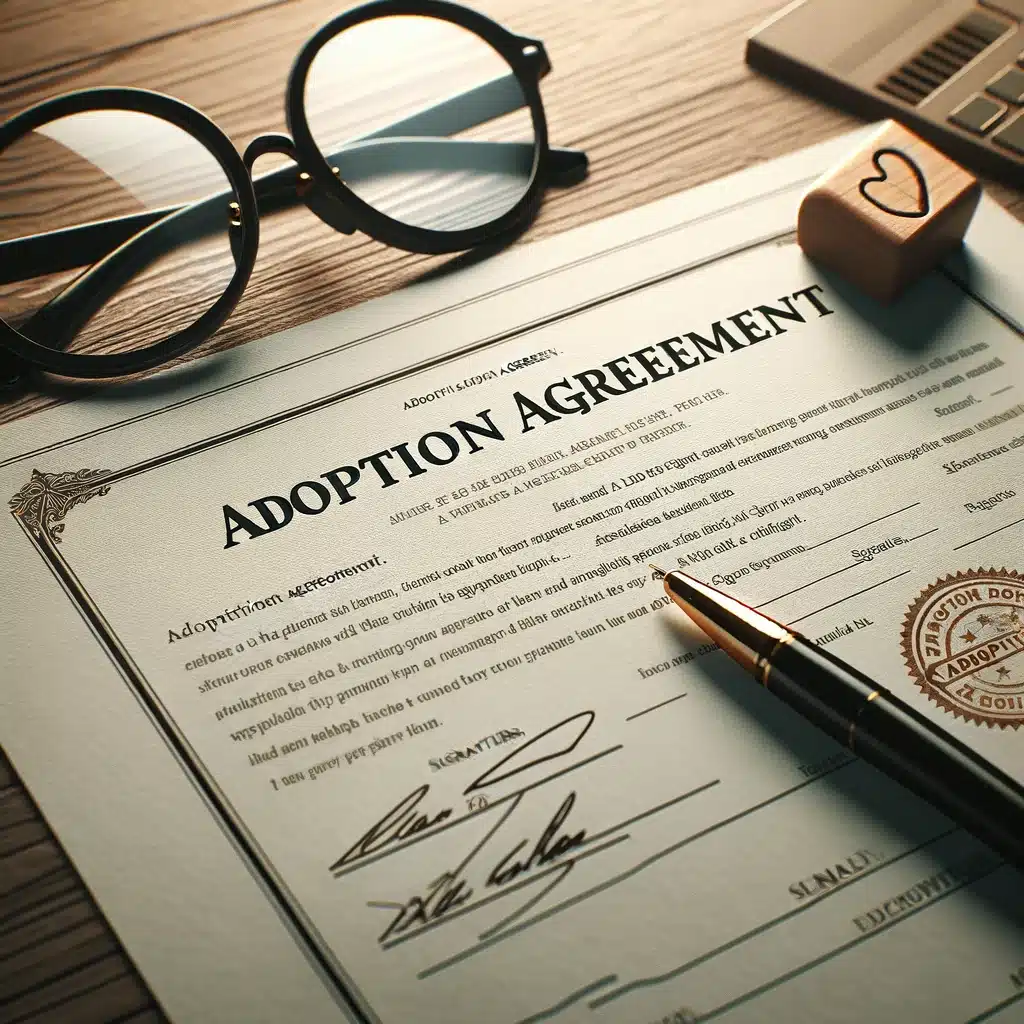
Adoption is a significant and life-changing decision that provides children with loving and stable homes. However, the permanence of adoption can lead to complex legal questions, particularly when biological parents seek to regaining custody after an adoption has been finalized. Understanding the legal reality of biological parents regaining custody after adoption in Texas is essential for both adoptive families and biological parents navigating these challenging circumstances. In this blog post, we will explore the legal framework surrounding adoption in Texas, the conditions under which regaining custody might be possible, and the implications for all parties involved.
Understanding Adoption in Texas
Adoption in Texas is designed to create a permanent, legally binding relationship between the adoptive parents and the child, severing the legal ties between the child and their biological parents. This process is governed by the Texas Family Code, which outlines the requirements and protections to ensure that adoption serves the best interests of the child.
Types of Adoption in Texas:
- Stepchild Adoption: Where a stepparent adopts their spouse’s child from a previous relationship.
- Relative Adoption: Adoption by a family member.
- Non-relative Adoption: Adoption by individuals who are not related to the child.
Each type of adoption involves specific legal procedures and requirements aimed at providing the child with a secure and nurturing environment.
Permanence of Adoption
Once an adoption is finalized in Texas, it is intended to be permanent. The legal process involves:
- Termination of Parental Rights: The biological parents’ legal rights are terminated, and the adoptive parents assume full parental responsibilities.
- Adoption Decree: A legal document that formalizes the adoption, granting the adoptive parents all rights and responsibilities of parenthood.
This permanence is crucial for providing stability and ensuring that the child’s emotional and physical needs are consistently met.
Can Biological Parents Regain Custody After Adoption?

In general, once an adoption is finalized in Texas, the biological parents lose their legal rights and cannot unilaterally regaining custody of the child. However, there are exceptional circumstances where regaining custody might be considered, though these are rare and typically involve significant legal challenges.
Grounds for Reversing an Adoption:
- Fraud or Misrepresentation: If it can be proven that the adoption was obtained through deceit or withholding crucial information, a court may consider reversing the adoption.
- Coercion or Duress: If the biological parents were forced or threatened into consenting to the adoption, this could be grounds for reversal.
- Best Interests of the Child: If circumstances have drastically changed, and it is demonstrated that reversing the adoption serves the best interests of the child, a court might approve the reversal.
Legal Process for Reversal:
- Filing a Petition: The biological parents must file a legal petition with the court to seek reversal of the adoption.
- Court Evaluation: The court will thoroughly evaluate the petition, considering evidence and testimonies to determine whether reversing the adoption is justified.
- Final Decree: If the court approves, a final decree is issued, reinstating the biological parents’ rights and severing the adoptive parents’ legal ties.
Challenges in Regaining Custody After Adoption

Regaining custody after adoption in Texas is fraught with legal and emotional challenges:
- High Burden of Proof: Biological parents must provide compelling evidence to convince the court to reverse the adoption.
- Emotional Impact: The process can be emotionally devastating for all parties, including the child, adoptive parents, and biological parents.
- Legal Costs and Time: Reversing an adoption involves lengthy legal proceedings and significant financial costs.
- Stability for the Child: Courts prioritize the child’s stability and well-being, making reversals uncommon unless absolutely necessary.
Best Interests of the Child Standard
In all custody-related cases, including those involving regaining custody after adoption, Texas courts adhere to the “best interests of the child” standard. This principle ensures that decisions are made based on what will most benefit the child’s emotional, psychological, and physical well-being.
Factors Considered:
- Emotional Bonds: The strength of the relationship between the child and both the adoptive and biological parents.
- Stability: The ability of the parents to provide a stable and nurturing environment.
- Child’s Wishes: A child’s preferences may be considered based on their age and maturity.
- Health and Safety: Any history of abuse, neglect, or other factors that may impact the child’s well-being.
Support for Families Navigating Custody Reversals
Facing the possibility of regaining custody after adoption is an incredibly sensitive and complex situation. Support from legal professionals and counseling services is essential to navigate the emotional and legal challenges involved.
Legal Assistance:
- Expert Guidance: Experienced family law attorneys can provide crucial guidance on the legal requirements and potential outcomes.
- Document Preparation: Properly preparing and filing all necessary legal documents is vital for a successful case.
- Court Representation: Skilled attorneys can effectively advocate for your case in court, presenting evidence and arguments to support your petition.
Emotional Support:
- Counseling Services: Professional counseling can help all parties manage the emotional stress and complexities of custody reversals.
- Support Groups: Connecting with others who have faced similar situations can provide valuable support and understanding.
How the Law Office of Bryan Fagan Can Assist
At the Law Office of Bryan Fagan, we understand the profound emotional and legal implications of regaining custody after adoption. Our dedicated team of family law attorneys is committed to providing compassionate and comprehensive legal support to biological parents seeking to reverse an adoption.
Our Services Include:
- Legal Consultation: We offer thorough consultations to understand your unique situation and provide tailored legal advice.
- Document Preparation and Filing: Our team ensures all necessary documents are accurately prepared and filed in a timely manner.
- Court Representation: A child’s preferences may be considered based on their age and maturity.
- Emotional Support Resources: We connect you with counseling and support services to help manage the emotional challenges of the process.
Start Your Journey Towards Resolution Today
Navigating the complexities of regaining custody after adoption in Texas requires expert legal guidance and unwavering support. If you are considering seeking a reversal of adoption or need more information about the process, contact the Law Office of Bryan Fagan today. Our experienced and compassionate team is here to help you through this difficult journey, ensuring that your rights and your child’s best interests are upheld.
Bryan Fagan is a Texas family law attorney with a heart for adoption—inspired not just by his legal career, but by his own family story. Growing up in Atascocita with two adopted brothers, Bryan learned early the profound meaning of chosen family. His passion for justice was sparked by John Grisham’s The Pelican Brief, and he became the first lawyer in his family, balancing night classes at South Texas College of Law while caring for his grandmother with Alzheimer’s.
Today, Bryan brings that same dedication to his practice, guiding families through adoptions, custody disputes, divorces, and complex marital agreements. A certified member of the College of the State Bar of Texas, he combines elite legal expertise with genuine empathy—drawing from his roles as a husband, father of three, and advocate for families facing false CPS allegations.
Based in Houston, Bryan is actively involved in the Houston Bar Association’s Family Law Sector and statewide family law organizations. Whether finalizing an adoption or protecting parental rights, he believes the law should reflect the deepest values of home, commitment, and love.

